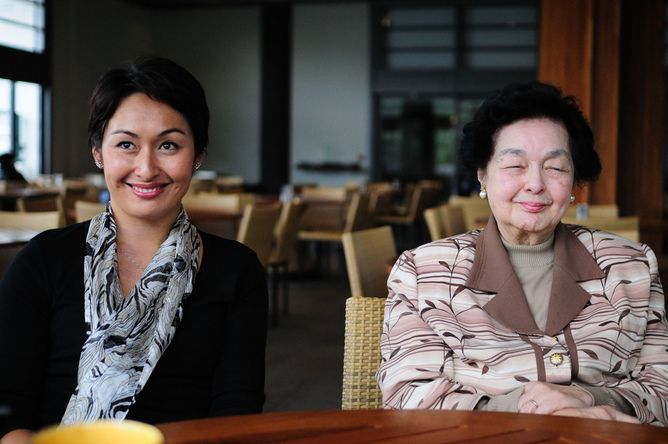
To Live Longer We Have to Change Outdated Ideas of What It Means to Grow Old (Op-Ed)

This article was originally published at The Conversation. The publication contributed the article to Live Science's Expert Voices: Op-Ed & Insights.
Despite being called a “grand challenge” alongside climate change and terrorism, the fact of an ageing society isn’t new; it has been proceeding quietly across all developed countries for 174 years: data on female life expectancies starting in 1840 reveal an average increase of two months every ten years.
The linear trajectory of this increase is remarkable and shows no sign of reaching a plateau. This century, the fastest growing section of the population is the very old; there are 10m Britons alive today who can expect to live to at least 100.
The familiar response to such information is negative: ageing is a problem. This is certainly the dominant media narrative, with common references to the “costs” and “burdens” of ageing. Of course this narrative discounts the economic, social and cultural contributions made by older people, for example in families as grandparents and in local communities. It also ignores the very high levels of solidarity between generations when it frequently suggests that the baby boomers are stealing resources from younger generations.
As I argued in a recent British Academy debate, social science research demonstrates that this dominant narrative is out of date. There is a widely observed “structured lag” of around 20 years between demographic change and policy and institutional responses. This means that our ideas about ageing are stuck in the past. For example, the quiet longevity revolution is underpinned by improved health, although this isn’t always consistent. So, for many people in terms of physical capacity, 70 is the new 50.
Incomes in old age have risen and poverty has been reduced (although still far from being eradicated). There is a new trend away from early exit from employment towards extended working lives; more than 1m people are working beyond their pension age. There has been a major cultural shift too, in literature, art and some fashion directed towards later life. And the anti-ageing industry is worth billions of pounds.
As well as these changes in the meaning and experience of later life, there is new evidence that demands that we bridge the structural lag and replace the burden scenario with a different narrative. The science tells us that, while ageing is inevitable, it is hugely variable and plastic. The bodily wear and tear that means ageing, in biological terms, is caused primarily by environmental damage not genetics.
Sign up for the Live Science daily newsletter now
Get the world’s most fascinating discoveries delivered straight to your inbox.
The key risk factors include poor diet, lack of exercise, stress, low social class, smoking and so on. These cause the chronic condition (such as heart disease and stroke) which either end life prematurely or disable it. Therefore, if we can modify the impact of the risk factors and reduce chronic conditions, then we can extend active lives. For example there are proven links between physical exercise and lower risks of diseases such as stroke and diabetes.
Active ageing
The conceptual basis for a new vision of later life in our society is “active ageing”, or getting the maximum participation from people as they age. This concept would seek to achieve a combination of individual, organisational and societal actions to minimise risks and maximise well-being as people age, and it would need to begin at birth. At its core would be prevention: enabling and supporting people to maintain physical and mental functioning.
In contrast to the stultifying negative response to ageing, research points to the possibility of a much more positive vision. There are potential blockages, such as the obesity epidemic and worsening inequality. Not to mention politicians and think-tanks, some of which are seemingly hell bent on creating generational strife. But, if these can be overcome, the promise of active ageing for all offers benefits for everybody, even the exchequer.
Alan Walker took part in the first in a series of British Academy Big Debates on ageing. Two further debates include Too Old to be Useful: Challenging Negative representations of Older People, and The Best Years of our Lives: Body, Brain and Well-Being in Edinburgh on 29 April.
Alan Walker is Director of the New Dynamics of Ageing Programme at Sheffield but does not receive any financial benefit
This article was originally published on The Conversation. Read the original article. Follow all of the Expert Voices issues and debates — and become part of the discussion — on Facebook, Twitter and Google +. The views expressed are those of the author and do not necessarily reflect the views of the publisher. This version of the article was originally published on Live Science.












